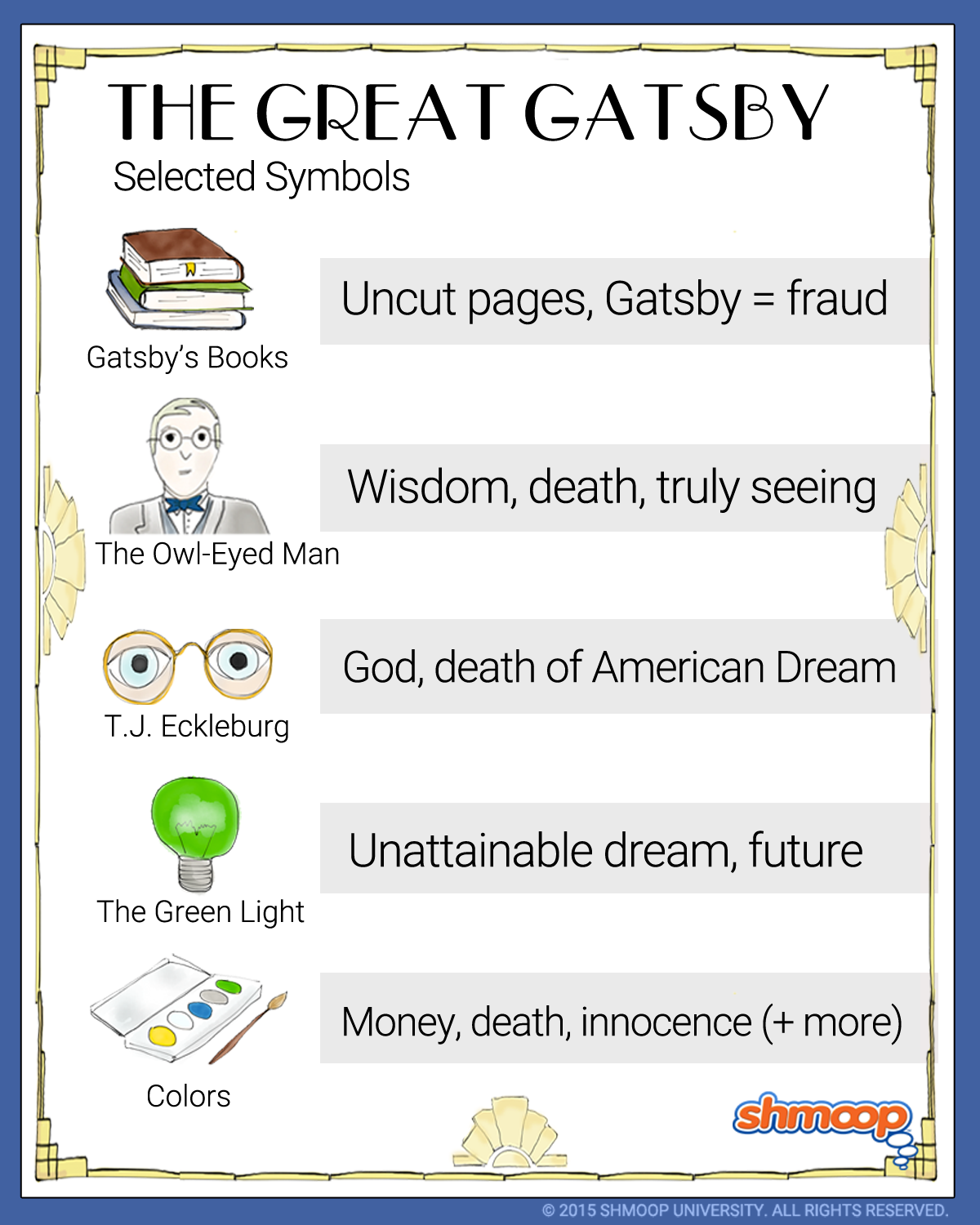Symbolism, Imagery, Allegory

(Click the symbolism infographic to download.)
Speaking of those books, what's up with that guy in the library? We did list the owl-eyed man as a character, but we're not so sure that he really qualifies. Even Nick reduces him from a man to a pair of eyes. So we're thinking he's really more of a symbol than a full-blown character. (Disagree? Check out his "Character Analysis" for some tasty evidence.)
And, yes, we are getting to the point. First, there's the owl bit; owls are a symbol of wisdom, but can also be an omen of death (we don't know how that came about, either, but we're thinking someone got their signals crossed). Did you notice that it was the owl-eyed man who had the car accident outside of Gatsby's house? And that, shortly after he got out of the car, he revealed that someone else was driving? He really is acting as an omen, or a harbinger, of death. Spooky, right?
Four Eyed
But it's really the glasses bit that has our hearts beating faster right now. A man with large eyes and spectacles would be expected to be more perceptive than those around him, right? And Fitzgerald makes sure we notice the glasses; the guy is always taking them off and wiping them: "He took off his glasses and wiped them again, outside and in" (9.118). Is all that wiping the reason that the owl-eyed man is the only one of Gatsby's guests who really gets him?
Well, he is the only guest who, in doubting Gatsby, is also wise enough to investigate further. And when he does investigate, he understands what he sees: "See!" he cried triumphantly. "It's a bona-fide piece of printed matter. It fooled me. This fella's a regular Belasco. It's a triumph. What thoroughness! What realism! Knew when to stop, too – didn't cut the pages. But what do you want? What do you expect?" (3.41-49).
There's a lot stuffed into that paragraph, so let's unpack it: first, the owl-eyed man is surprised (and a little delighted) to find out that the books are real. So, Gatsby's done his due diligence in trying to fool people: he's actually gone out and purchased real books. But, as the man discovers, he hasn't cut the pages and actually read them. That's because he's the perfect Belasco, a reference to theater producer David Belasco. Gatsby knows how much he has to do to fool people, and he knows that he doesn't need to cut the pages. Nobody in this crowd is going to check, because they're just as fake as he is. That's what the owl-eyed man sees.
Goodbye, Gatsby
If you're as interested in the owl-eyed man as we are, you should check out the scene at the end where he's the only former guest to come to Gatsby's funeral. Why would that be? Exactly.